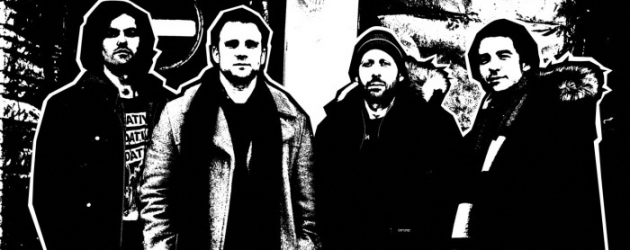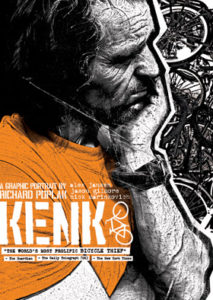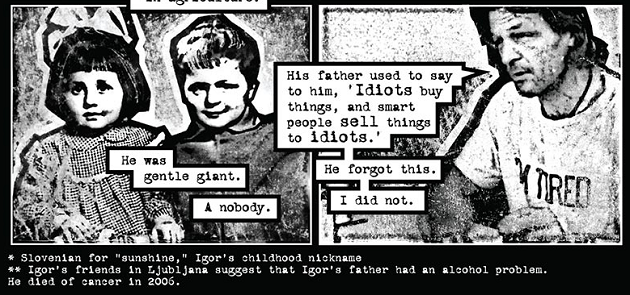
Kenk: A Graphic Portrait
Publisher:Pop Sandbox
Writers/Artists: Jason Gilmore, Alex Jansen, Richard Poplak, Nick Marinkovich
Price: $27.95 CAD
Release Date: May 6, 2010
I’ve never been a big customer of indie comics; the stores I frequent usually have a sizable selection, but I’ve either been turned off by the sometimes-high price of the books or the simple disinterest in what can be an unproven product. However, once in awhile something interesting catches my eye, like in this case, with Kenk: A Graphic Portrait.
 In short, Kenk is the story of a bike thief. A good one. One that, when eventually busted by Toronto police, yielded over three thousand stolen bikes, both in his shop and various garages around the city. This book takes us through the months leading up to the bust, portraying Igor Kenk as he lived in his natural environment.
In short, Kenk is the story of a bike thief. A good one. One that, when eventually busted by Toronto police, yielded over three thousand stolen bikes, both in his shop and various garages around the city. This book takes us through the months leading up to the bust, portraying Igor Kenk as he lived in his natural environment.
A former policeman in the old country of Yugoslavia, Kenk’s transformation from lawman to smuggler to bike thief is portrayed in a stunning art style: using film stills from a documentary that the creators were shooting, the images were photocopied and manipulated in the style of Do-It-Yourself zines. It ends up giving the art a very urban-gritty feel.
I can sit here and tell you that Kenk is a very good graphic novel (which it is) and that you should find/read it (which you should), but there’s a deeper point to this: Kenk is something more than a graphic novel.
As the team was filming Igor at the time of his 2008 arrest the piece took a turn from biographical to journalistic. They needed a deeper investigation into the life and psyche of Igor, and to convey his ideas about life in a way the reader could understand. Richard Poplak, a Toronto journalist, was brought onto the project in order to improve it and add his experience, with deep investigation, to the project.
His involvement shows that comics, as a medium, has the potential to extend beyond the fantastical stories or gag-a-day, semi-autobiographical jumbles. The level of detail and emotion that’s contained within Kenk gives the reader insight into someone that they might hate out of principle; everyone has had a bike stolen in their life, and now they have a face to pin it on.
However, the reader might come out of Kenk feeling a bit sympathetic. I wasn’t sure how to feel about Igor’s arrest: was he just a misunderstood man with skewed versions of right and wrong? Or did he get what was coming to him?
If you’re a fan of books that can make you think, maybe you can answer that question for me.
Matt Demers
contact@comicattack.net



Hey Matt! This sounds like an interesting read but when I hear “moral questions” in books like this I always think that no matter how a person was raised, they still inevitably know right from wrong in the end.
Pingback: New news! And new columns! | Matt Demers.com